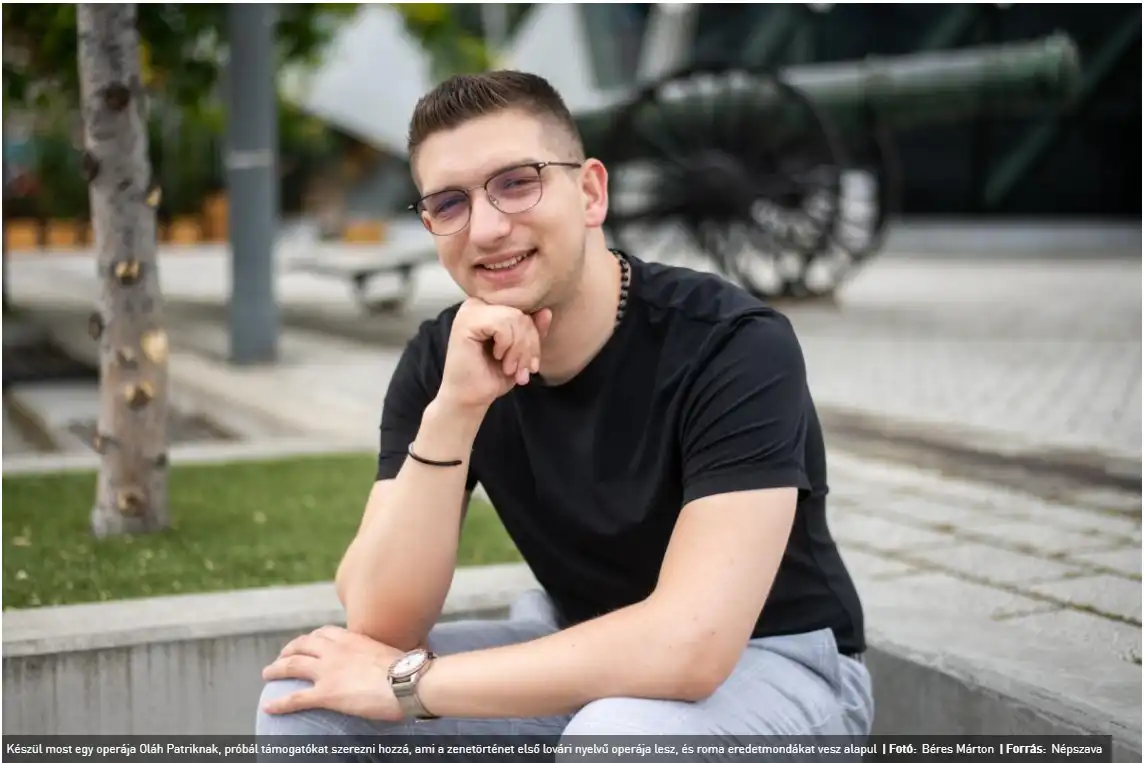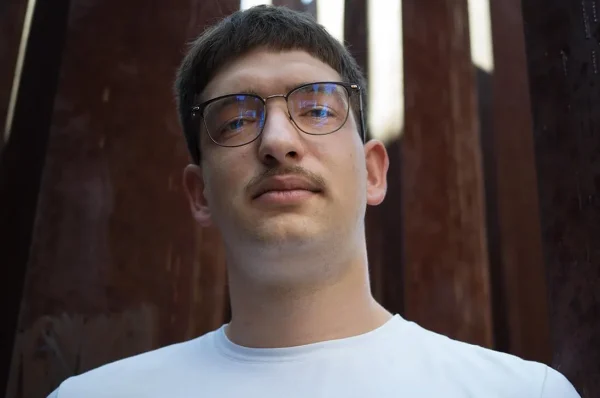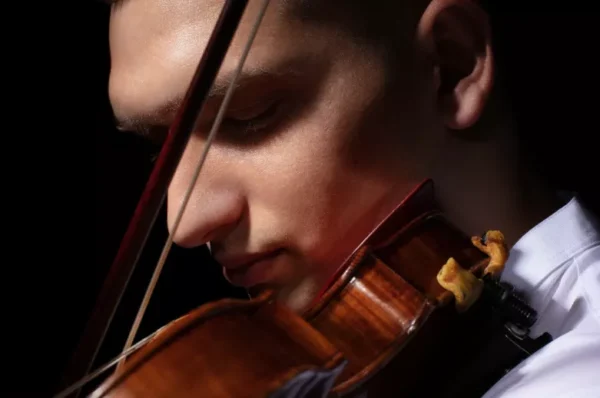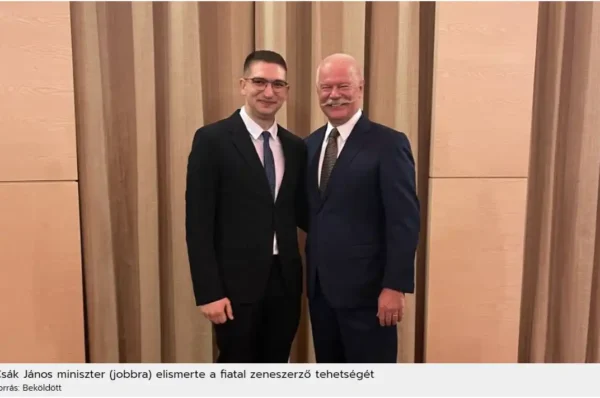In the joint composer competition of the Budapest Festival Orchestra and the Budapest Metropolitan Municipality, Oláh Patrik, winner of the Junior Prima prize, finished first. We talked to him about his relationship with the capital and his career and plans so far.
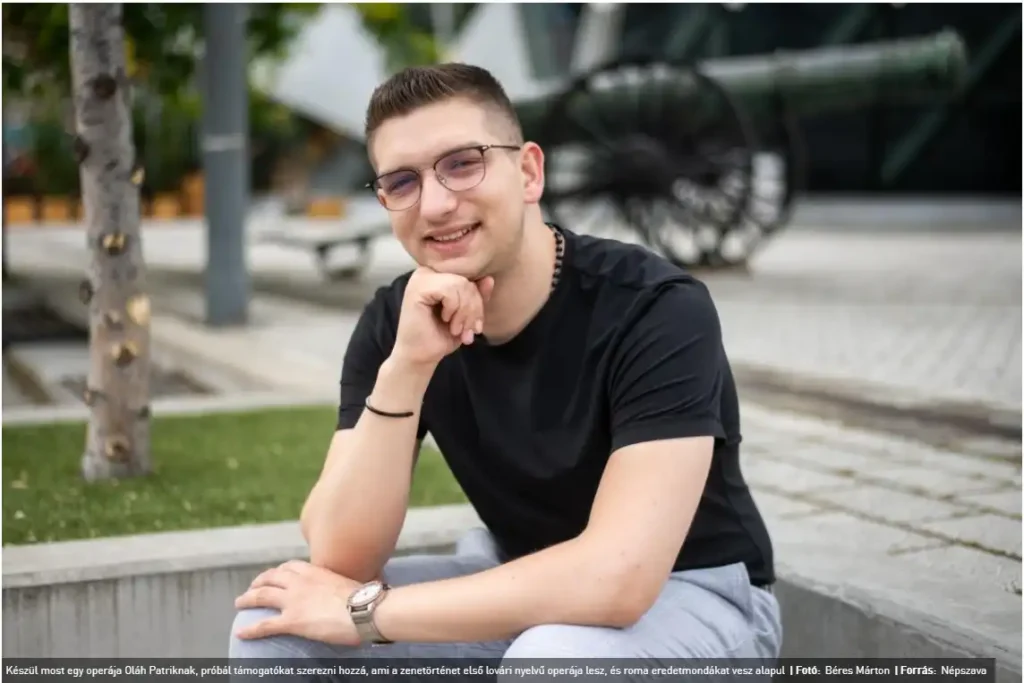
Budapest has a tradition of celebrating the jubilee of its unification with new musical works. Béla Bartók’s Táncszvit, Zoltán Kodály’s Psalmus Hungaricus and Ernő Dohnányi’s Festive Overture were created on the occasion of the half-century anniversary of the unification of Buda, Pest and Óbuda at the city’s request in 1923. Now, the capital and the Festival Orchestra have launched a tender for the 150th anniversary, and the winner is Patrik Oláh’s Fusion, which will be premiered on the second of September in Hősök square. We sat down to talk with the young, twenty-five-year-old composer on the banks of the Danube, where the background was a wonderful panorama of the city with Gellért Hill, the river, and the bridges.
The first question arose, what is his relationship with the city. – I came to Budapest when I was fourteen years old, when I was admitted to the Bartók Béla Music Academy, and so I had to leave my parents’ house in Salgótarján. At the time, it meant freedom to my teenage self, I was caught up in the hustle and bustle, but now, eleven years later, it gives me much more. Especially the Danube has become a good acquaintance of mine, I often sit down on its banks just to look at it, in such cases I breathe together with the city – Patrik Oláh began his testimony. Nevertheless, he did not apply for the competition driven by a sudden idea, he expected that something like this could happen, since they were created a hundred years ago – and what works! – on the occasion of the anniversary. He toyed with the idea of what could be written for such an occasion, and then in January of this year, the application was announced. The time was already short, and because of his other commitments, he was only able to start composing in the middle of March, and he finished the eight and a half minute piece for a large orchestra in a month and a half. In addition to genre and time constraints, what other requirements had to be met? – we inquired further. – Since I had to somehow connect with the city itself, its history, the time that has passed since the unification, I presented the atmosphere of the city’s history in my music: the crushing of the revolution of 1848-49, the Habsburg oppression, then the Trianon tragedy, later the Soviet rule , but also the period of regime change – explained the composer. He thoroughly researched the history of the unification, which finally succeeded on the third attempt, the first time the times after the 1848-49 revolution and war of independence were not favorable to this, and then another, ten-year attempt also failed, but it was finally possible after the compromise. This has already been carefully prepared and planned, and this is also reflected in the music that won the competition, as well as the mentioned historical events.
The questioner does not have an easy task when talking to a young instrumentalist or composer – let’s say – since the stories are roughly that the person started playing the violin and piano when he was 5-7 years old, practiced a lot, then won prizes, played in patina concert halls , if he is (also) a composer, his works were presented by his famous colleagues, and almost always that’s all. But I had to ask how it started, did you want to compose from the beginning? – Because I was bored at home in the afternoon after school, influenced by my cousins, I started studying the violin at the age of seven at the music school in Salgótarján, then at the age of fourteen I was admitted to the conservatory, I studied there for five years, but I already applied to the Academy of Music to major in composition. There were several reasons for this; I was interested in composing music since I was eight years old, and although I had no problem with playing the violin, I did with practicing: I didn’t like spending two, three or four hours a day in a room and practicing. However, when I was in my fourth year, I submitted a piece to a competition, and even though I entered the non-composer category, I came second among composers because the jury deemed it so good that it was evaluated along with their works. This confirmed that I am moving in the right direction. I didn’t have a problem with studying either, I really liked math, I got to the point where I used the formula for solving quadratic equations when writing a play, said Patrik Oláh.
This is interesting, let’s raise it, although there are known compositional techniques from the last century – which are still alive today, and as we know, one of them (serialism) also plays a role in Oláh’s works – which prioritize thinking over emotions. But the question is precisely this: what will be the end result of this? “The logical way of thinking can definitely be used when composing. But you have to take care of the balance, yes, I see that last year’s work that I mentioned, unfortunately, I managed to steer it too theoretical. But sometimes you have to count,” is the answer.
Returning to the story, Patrik Oláh graduated, is currently attending doctoral school, but already teaches several subjects at the university, as he does not yet have his degree, as a demonstrator. And, of course, he receives the awards and reaps the successes, which includes the presentation of the world’s first Mass in Lovár in 2021, for which he wrote the music. One of the precedents for this is the recent publication of the entire Bible translated into the Lovári language. The mass was made to order, at the request of the organizers of the 52nd International Eucharistic Congress, after the entire official text of the mass was created in the Lovár language. “The difficulty and beauty of the work came from the same source, the unification of classical music and church music was done a long time ago in the history of music, now I had to combine classical music, church music and gypsy music, well, that was difficult: that the work within the liturgical framework can also hold its own and be able to sound in concert halls. Now, on June 11, a re-arranged version was performed in Germany, which unfortunately I couldn’t listen to,” says Patrik.
He only writes music for commissions or tenders, he has to put too much work into composing to work for a desk drawer, the last time this happened was in his teens. You don’t have to write a lot of pieces, just a few, but they should be good and be heard in good places, such as the festive work in the area of Hősök.
Nevertheless, an opera by Patrik Oláh is currently being prepared, he is now trying to get supporters for it, which will be the first opera in the Lovári language in the history of music, based on Romani legends, and there has already been interest in it from Germany. It will feature all kinds of music that can be associated with gypsies, from authentic folk music to verbunkos and coffee house music to today’s most fashionable genres: even wedding rock can be dressed up in a sophisticated way.
The original article is available at: https://nepszava.hu/3198525_osszhangban-a-zenevel-olah-patrik-utja-az-unalomtol-a-budapesti-gyozelemig
The article is available for download: Összhangban a zenével – Oláh Patrik útja az unalomtól a budapesti győzelemig

